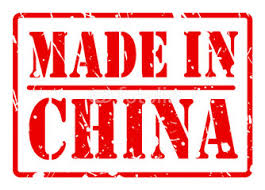
As the world looks back 100 years to the start of the Great War it is tempting to see all kinds of parallels emerging now upon the world stage. Employers may try to detach themselves from politics and the macro-economic trends that determine the wealth of nations – but in the end such factors intrude into everything that we do.
100 years ago the unification of Germany under Prussia was still recent history, it had created an energy and confidence that reflected in everyday lives of Germans and allowed vast industrial empires such as Krupp to emerge. It was Germany’s industrial might rather than political encirclement from France, the UK and Russia that made war possible.
Today German continues to stand out as one of the few politically strong nations. The German Chancellor is generally respected and in a powerful position, meanwhile in the UK the government is weak and faces the possibility of a crushing defeat next May by a new party that is dividing the nation over immigration issues and wishes to isolate the UK economically. The French President has been the butt of scandals and is also weak, the French economy refuses to grow and is riddled by rigid labour market rules. In America the President is no longer in command of his own Congress and the USA will be virtually leaderless now until 2016.. Whilst finally in Russia the leadership is still reeling from foreign sanctions brought about by its support for rebel groups in Ukraine.
Germany apart, only China stands out as politically stable global player and growing at a much faster pace than anywhere else in the world. Although it suffers from pollution problems that it is struggling to overcome, its other Achilles heel – corruption – is now getting under control. Wage rates are rising – particularly in Beijing, Shanghai, Guangzhou and Shenzhen – but rates in other major cities remain highly attractive for the foreign investor. However, it is not inward investment that now drives the Chinese economy – but the growth of mega corporations that have been able to take advantage of China’s vast domestic market. In the next two years many of these companies will burst out to form major multinational enterprises. The companies Tencent and Alibaba have recently been launched on the New York Stock Exchange and numerous others will follow.
So, 100 years on, we once again have an imbalance of power. This time more economic than military – and only two major nations will be able to take full advantage of this period to improve their global dominance. Maybe this is an economic revolution few will regret. I certainly will not, as I have a huge admiration for what China has achieved over the last two decades. However, if your company has a prized global brand take care – it might be sidelined soon.